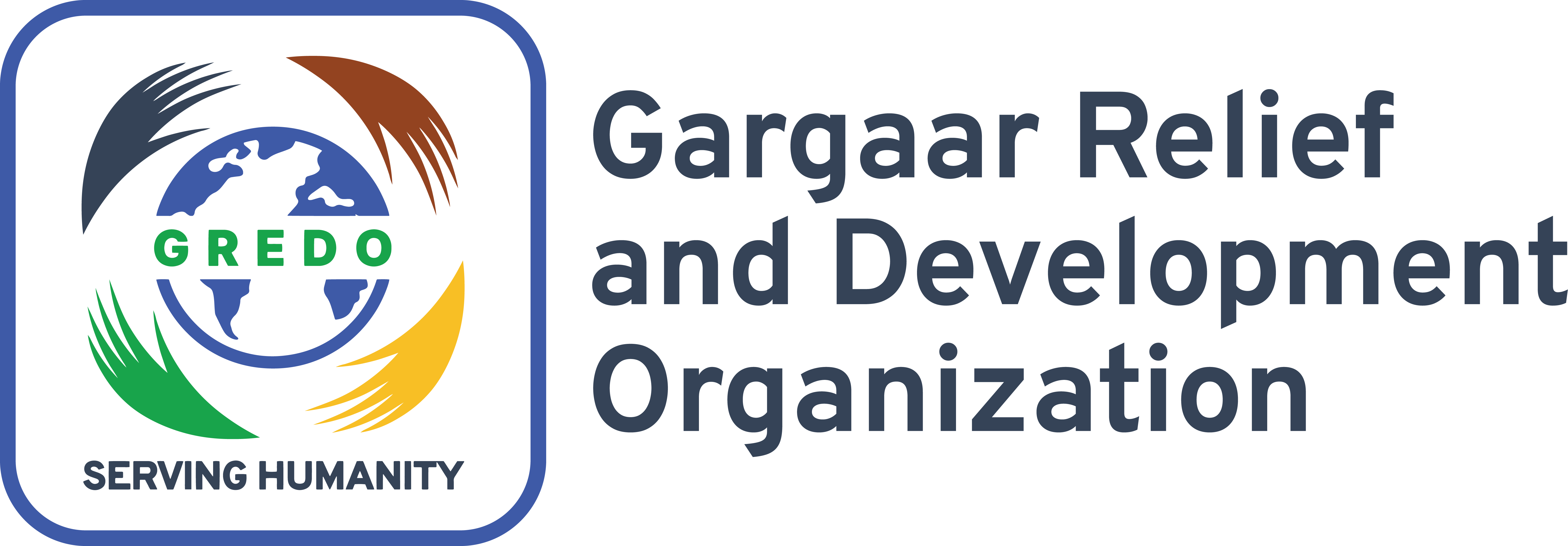The humanitarian and nutrition crisis in Somalia continues to pose significant challenges, especially for women and children affected by acute food insecurity, displacement, and conflict. In response, GREDO—in collaboration with Acted and with funding from the French Embassy—is leading a comprehensive nutrition intervention titled “Strengthening the Nutrition Well-being and Resilience of Vulnerable Communities in Southwest State and Jubaland.”
The project targets four districts: Baidoa (Bay), Afgoye (Lower Shabelle), Kismayo (Lower Jubba), and Baardheere (Gedo), with a core focus on reducing malnutrition and improving resilience among pregnant and lactating women (PLW) and children under two years (the critical 1,000-day window). Through a mix of emergency nutrition services, behavior change strategies, and capacity building, the project addresses both the immediate and root causes of malnutrition.
Project Objectives
To reduce mortality in the short and mid-term in Jubaland and Southwest State through the provision of emergency nutrition and food security assistance.
Specific Objective:
To provide immediate support to children and mothers suffering from Severe Acute Malnutrition (SAM) and Moderate Acute Malnutrition (MAM), while simultaneously building the long-term resilience of households, communities, and local health systems.
Geographical Coverage
The project is implemented in:
-
Southwest State:
-
Bay Region: Baidoa (Bonkai and Barawaaqo-3)
-
Lower Shabelle: Afgoye (Aaytiri and Carbiska)
-
-
Jubaland State:
-
Lower Jubba: Kismayo (Qamqam and New Luglow)
-
Gedo: Baardheere (Shimbirole East and Shimbirole West)
-
Key Nutrition Activities and Methodologies
Emergency Nutrition Services
-
Mobile Nutrition Teams (MNTs): Four mobile teams (one per region) deliver nutrition services directly to underserved communities. Each team includes medical staff, screeners, community mobilizers, and Infant and Young Child Feeding (IYCF) counselors.
-
Screening and Detection (MUAC): Systematic screening of children (6–59 months) and PLWs using Mid-Upper Arm Circumference (MUAC) and edema checks to identify cases of SAM and MAM.
-
Outpatient Therapeutic Program (OTP): Treatment of SAM in children through mobile teams following Somalia’s Integrated Management of Acute Malnutrition (IMAM) and CMAM protocols. Each case includes a full clinical assessment, medical treatment, nutrition rations, and follow-ups.
-
Targeted Supplementary Feeding Program (TSFP): Provision of supplementary food to moderately malnourished children and PLW, preventing further deterioration and accelerating recovery.
-
MAMI Approach: Infant and mother support using the Management of At-risk Mothers and Infants (MAMI) care package. Community Nutrition Volunteers are trained to provide referrals and counseling.
Community Engagement and Nutrition Behavior Change
-
Mother-to-Mother (MtM) and Father-to-Father (FtF) Support Groups:
-
192 groups established across 8 target locations.
-
Peer-led sessions on nutrition, hygiene, IYCF practices, and maternal health.
-
-
Social Behavior Change Communication (SBCC):
-
Integrated communication campaigns designed around barrier analysis.
-
Use of one-on-one counseling, peer groups, and community dialogue to drive behavior change in nutrition and child care practices.
-
-
Family MUAC Training:
-
Community-based caregivers are trained to use MUAC tapes to monitor their children’s nutritional status.
-
Enables early detection, especially in pastoralist and hard-to-reach areas.
-
Systems Strengthening and Capacity Building
-
Health Worker Training:
-
Capacity building for 30 health facility staff on the Clinical Management of Rape (CMR) and integration of protection and disability considerations in nutrition programming.
-
-
Government and Cluster Support:
-
Joint trainings for Southwest and Jubaland Ministries of Health and Nutrition Cluster partners on inclusive nutrition in emergencies.
-
-
Infrastructure Mapping and Gap Analysis:
-
Comprehensive mapping of existing nutrition and health infrastructures to identify needs in equipment, staffing, utilities, and access for persons with disabilities.
-
Expected Impact
-
Improved nutritional status of over 43,000 individuals through direct interventions.
-
Enhanced community capacity to detect and respond to malnutrition.
-
Stronger coordination between humanitarian actors, government ministries, and health facilities.
-
Increased awareness and positive behavioral changes in IYCF and maternal health practices.
This project reflects GREDO’s strategic commitment to combat malnutrition through a holistic, community-based, and resilience-driven approach. By combining lifesaving interventions with empowerment, education, and local system strengthening, the project will significantly improve the nutrition landscape across Southwest and Jubaland States, building a foundation for healthier and more resilient communities.


